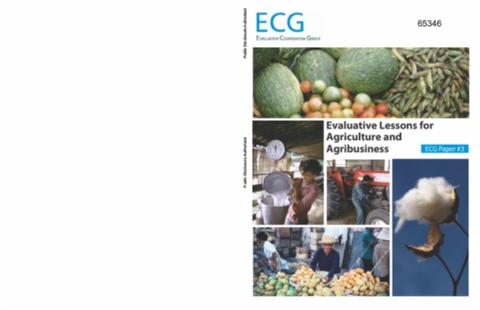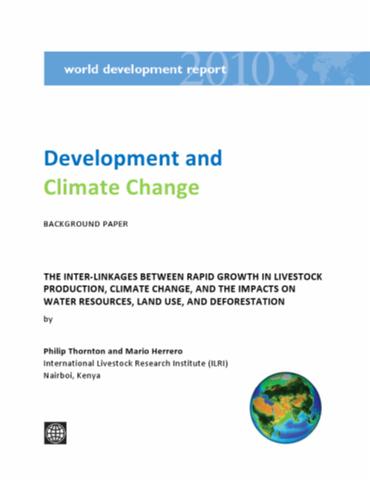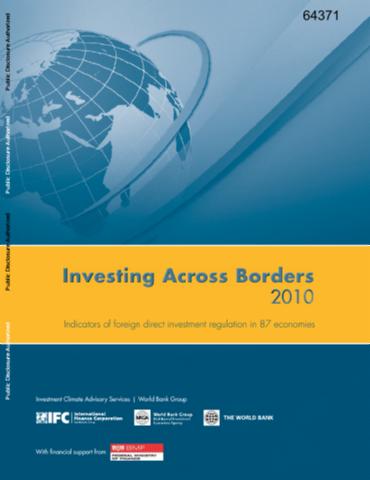The World Bank is a vital source of financial and technical assistance to developing countries around the world. We are not a bank in the ordinary sense but a unique partnership to reduce poverty and support development. The World Bank Group has two ambitious goals: End extreme poverty within a generation and boost shared prosperity.
- To end extreme poverty, the Bank's goal is to decrease the percentage of people living on less than $1.25 a day to no more than 3% by 2030.
- To promote shared prosperity, the goal is to promote income growth of the bottom 40% of the population in each country.
The World Bank Group comprises five institutions managed by their member countries.
The World Bank Group and Land: Working to protect the rights of existing land users and to help secure benefits for smallholder farmers
The World Bank (IBRD and IDA) interacts primarily with governments to increase agricultural productivity, strengthen land tenure policies and improve land governance. More than 90% of the World Bank’s agriculture portfolio focuses on the productivity and access to markets by small holder farmers. Ten percent of our projects focus on the governance of land tenure.
Similarly, investments by the International Finance Corporation (IFC), the World Bank Group’s private sector arm, including those in larger scale enterprises, overwhelmingly support smallholder farmers through improved access to finance, inputs and markets, and as direct suppliers. IFC invests in environmentally and socially sustainable private enterprises in all parts of the value chain (inputs such as irrigation and fertilizers, primary production, processing, transport and storage, traders, and risk management facilities including weather/crop insurance, warehouse financing, etc
For more information, visit the World Bank Group and land and food security (https://www.worldbank.org/en/topic/agriculture/brief/land-and-food-security1
Resources
Displaying 4621 - 4625 of 4907Evaluative Lessons for Agriculture and Agribusiness
Agricultural investments made by developing countries and multilateral development banks (MDBs) have declined in recent decades. This decline is associated with a slowdown in the growth of agriculture productivity. Most development institutions have recognized the damage caused by this past neglect, in part evident in rising food prices, and renewed attention to agriculture and agribusiness is emerging. But this renewed interest will need to deliver results, especially in Sub-Saharan Africa, where the MDBs have had the least success but where the needs and opportunities are enormous.
Rising global interest in farmland: can it yield sustainable and equitable benefits?
This paper analyses issues that affect the role of agriculture as a source of economic development, rural livelihoods and environmental services. Using experiences of land expansion in Asia, Latin America and the Caribbean, Eastern Europe, and sub-Saharan Africa, it assesses the extent to which recent demand for land differs from earlier processes of area expansion and identifies the current challenges, in terms of land governance, institutional capacity and communities’ awareness of their rights.
The Inter-Linkages between Rapid Growth in Livestock Production, Climate Change, and the Impacts on Water Resources, Land Use, and Deforestation
Livestock systems globally are changing rapidly in response to a variety of drivers. Human population growth, rapid urbanization, and growing incomes will lead to substantial increases in the demand for livestock products in the coming decades. Meeting this increased demand may put substantial pressure on a wide range of natural resources such as land and water. Together with climate change and increasing climate variability, these drivers of change add up to a formidable set of development challenges for developed as well as developing countries.
The Vanishing Farms? The Impact of International Migration on Albanian Family Farming
This paper investigates the impact of international migration on technical efficiency, resource allocation and income from agricultural production of family farming in Albania. The results suggest that migration is used by rural households as a pathway out of agriculture: migration is negatively associated with both labour and non-labour input allocation in agriculture, while no significant differences can be detected in terms of farm technical efficiency or agricultural income.
Investing across Borders 2010
Investing Across Borders 2010 (IAB) presents cross-country indicators analyzing laws, regulations, and practices affecting foreign direct investment (FDI) in 87 economies. The indicators focus on 4 thematic areas measuring how foreign companies invest across sectors, start local businesses, access industrial land, and arbitrate commercial disputes. The indicators combine analysis of laws and regulations, as well as their implementation.










